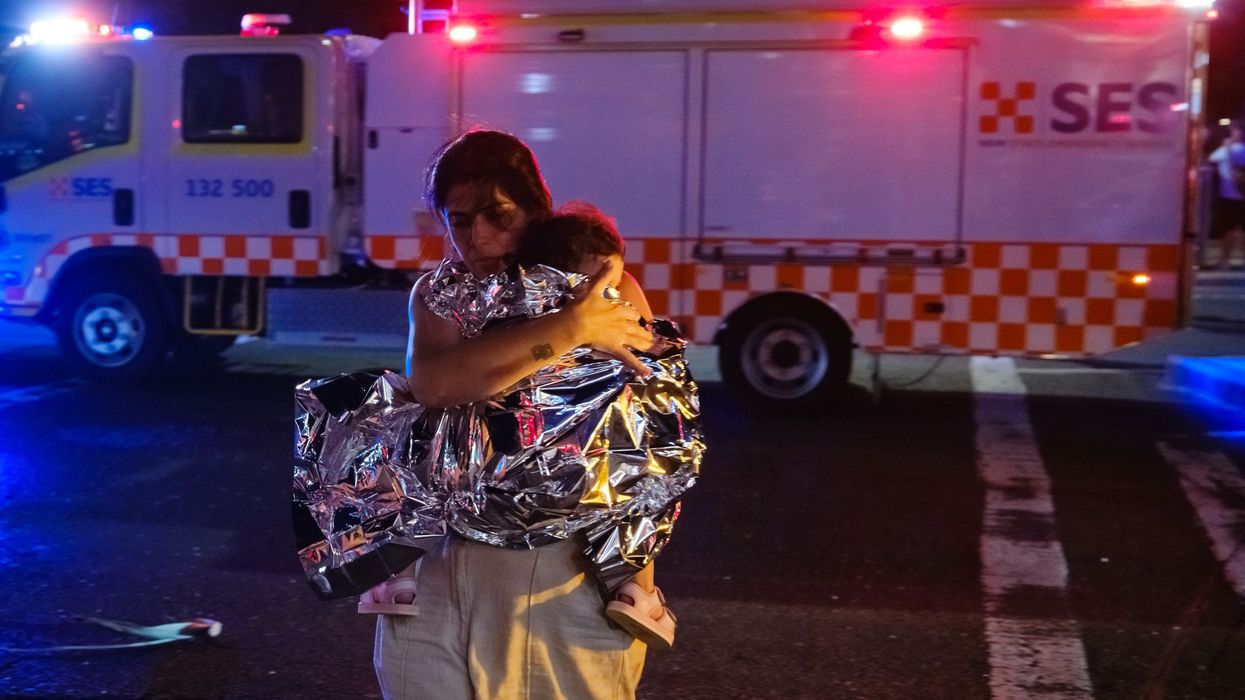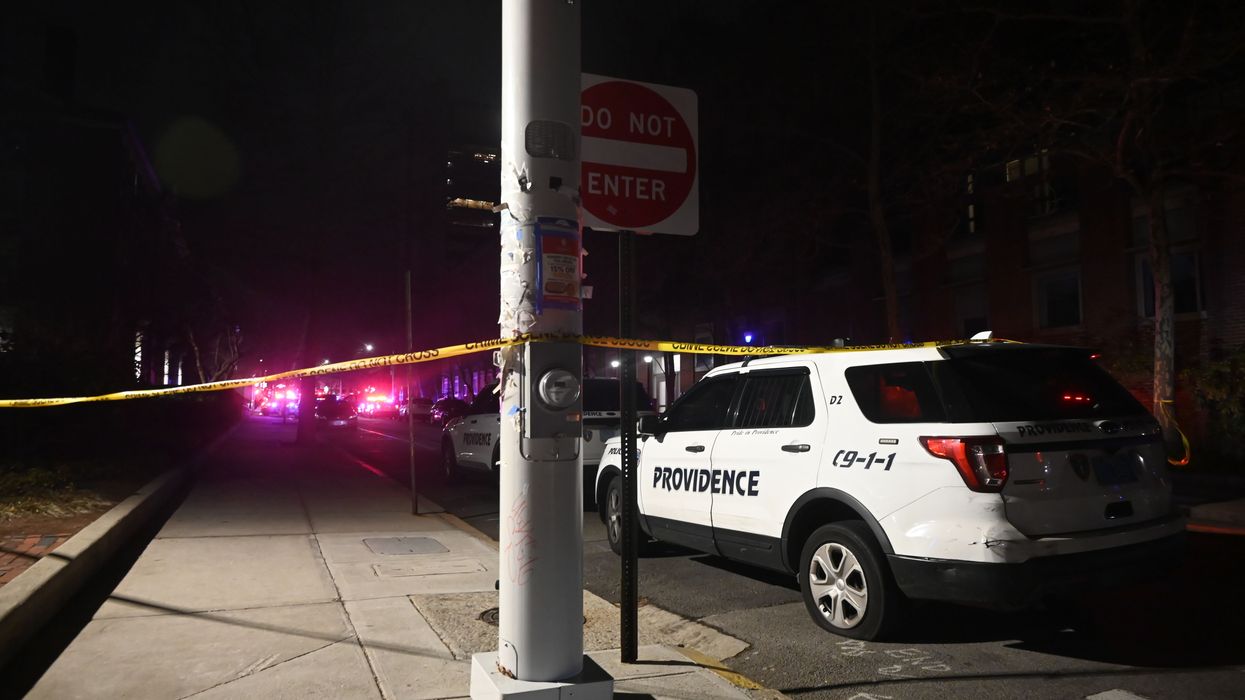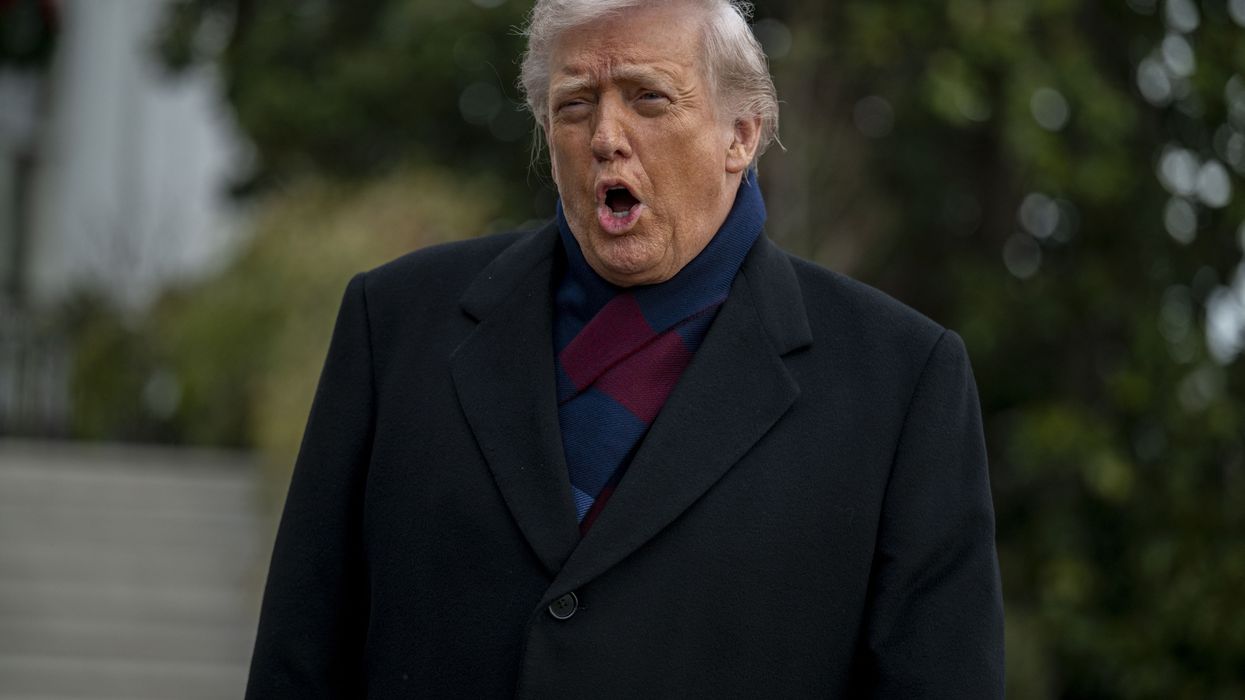"Guns are the leading cause of death for youth in this nation. Only in America do we live in fear of being shot and killed in our schools, places of worship, and grocery stores," she continued. "Now, as students, faculty, and staff hide and barricade themselves in immense fear, we once again call on lawmakers in Congress and around the country to take action against this uniquely American public health crisis. We cannot continue to allow politics and special interests to take priority over our lives and safety."
Despite some early misinformation, no suspects are in custody, and authorities are searching for a man in dark clothing. The law enforcement response is ongoing and Brown remains in lockdown, according to a 9:29 pm Eastern update on the university's website. Everyone is urged to shelter in place, which "means keeping all doors locked and ensuring no movement across campus."
The Ivy League university's president, Christina H. Paxson, said in a public message that "this is a deeply tragic day for Brown, our families, and our local community. There are truly no words that can express the deep sorrow we are feeling for the victims of the shooting that took place today at the Barus & Holley engineering and physics building."
US Sen. Sheldon Whitehouse (D-RI) said on social media that he was "praying for the victims and their families," and thanked the first responders who "put themselves in harm’s way to protect all of us." He also echoed the city's mayor, Brett Smiley, "in urging Rhode Islanders to heed only official updates from Brown University and the Providence Police."
In a statement, US Sen. Jack Reed (D-RI) also acknowledged everyone impacted by "this horrific, active, and unfolding tragedy," and stressed the importance of everyone listening to law enforcement "as they continue working to ensure the entire campus and surrounding community is safe, and the threat is neutralized."
The state's two Democratic congressmen, Brown alumnus Seth Magaziner and Gabe Amo, released similar statements. Amo also said that "the scourge of mass shootings is a horrific stain on our nation. We must seek policies to ensure that these tragedies do not strike yet another community and no more lives are needlessly taken from us."
Elected officials at various levels of government across the country sent their condolences to the Brown community. Some also used the 389th US mass shooting this year and the 230th gun incident on school grounds—according to Brady's president—to argue that, as US House Democratic Whip Katherine Clark (Mass.) put it, "it's past time for us to act and stop senseless gun violence from happening again."
Both Democratic US senators from Massachusetts also emphasized on Saturday that, in Sen. Elizabeth Warren's words, "students should be able to learn in peace, not fear gun violence." Her colleague Sen. Ed Markey said that "we must act now to end this painful epidemic of gun violence. Our children should be safe at school."
New York City's democratic socialist mayor-elect, Zohran Mamdani, noted that this shooting occurred just before the anniversary of the 2012 massacre at Sandy Hook Elementary School in Newtown, Connecticut:
This senseless violence—once considered unfathomable—has become nauseatingly normal to all of us across our nation. Tonight, on the eve of the anniversary of the Sandy Hook shooting, we find ourselves in mourning once again.
The epidemic of gun violence stretches across America. We reckon with it when we step into our houses of worship and out onto our streets, when we drop our children off at kindergarten and when we fear if those children, now grown, will be safe on campus. But unlike so many other epidemics, we possess the cure. We have the power to eradicate this suffering from our lives if we so choose.
I send my deepest condolences to the families of the victims, and to the Brown and Providence communities, who are wrestling with a grief that will feel familiar to far too many others. May we never allow ourselves to grow numb to this pain, and let us rededicate ourselves to the enduring work of ending the scourge of gun violence in our nation.
Fred Guttenberg has been advocating against gun violence since his 14-year-old daughter was among those murdered at Marjory Stoneman Douglas High School in Parkland, Florida nearly eight years ago. He said on social media that he knows two current students at Brown and asserted that "IT DOESN'T NEED TO BE THIS WAY!!!"
Students Demand Action similarly declared: "Make no mistake: We DO NOT have to live and die like this. Our lawmakers fail us every day that they refuse to take action on gun violence."
Gabby Giffords, a former Democratic congresswoman from Arizona who became an activist after surviving a 2011 assassination attempt, said that "my heart breaks for Brown University. Students should only have to worry about studying for finals right now, not hiding from gunfire. Guns are the leading cause of death for young people in America—this is a five-alarm fire and our leaders in Washington have ignored it for too long. Americans are tired of waiting around for Congress to decide that protecting kids matters."
John Feinblatt, president of Everytown for Gun Safety, warned that "we either take action, or we bury more of our kids."
The Associated Press noted that "Rhode Island has some of the strictest gun laws in the US. Last spring the Democratic-controlled Legislature passed an assault weapon ban that will prohibit the sale and manufacturing of certain high-powered firearms, but not their possession, starting next July."
Gun violence prevention advocates often argue for federal restrictions, given that, as Everytown's latest analysis of state-level policies points out, "even the strongest system can't protect a state from its neighbors' weak laws."




